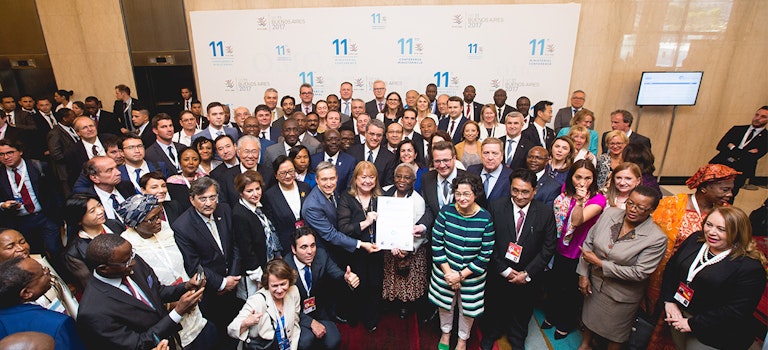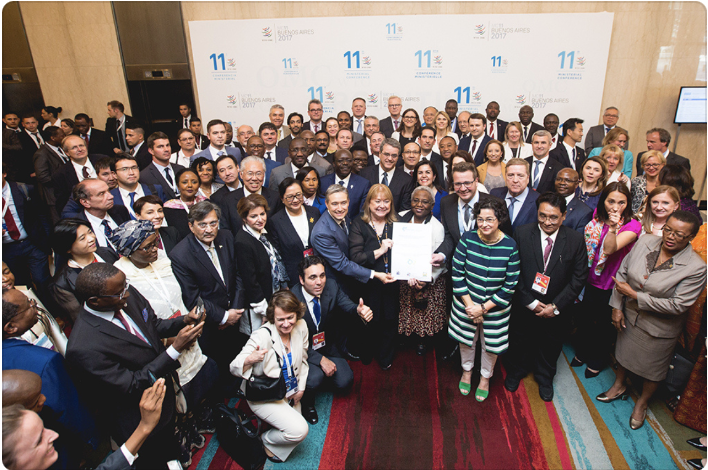
The Buenos Aires Declaration: Shifting the Global Trade Agenda
From Invisibility to Imperative
The 2017 Buenos Aires Declaration on Trade and Women’s Economic Empowerment marked a watershed moment in global trade policy, fundamentally reshaping how international institutions approach gender.
Breaking New Ground
Before 2017, the word “woman” had never appeared in any official GATT or WTO documents—a striking omission in institutions governing global commerce. Trade was considered officially “gender-neutral,” and therefore an off limits topic for discussion or research, despite evidence that this neutrality masked substantial inequalities.
Women at the Table convened the IGC Trade Impact Group—uniting the visionary Executive Director of the International Trade Centre, Arancha González, with Ambassadors from Sierra Leone and Iceland. This coalition challenged decades of institutional blindness.
Initially aiming for perhaps 12 nations to acknowledge the connection between trade and women’s economic empowerment, we targeted the WTO Ministerial Conference (MC11).
From Invisibility to Imperative
The 2017 Buenos Aires Declaration on Trade and Women’s Economic Empowerment marked a watershed moment in global trade policy, fundamentally reshaping how international institutions approach gender.
Breaking New Ground
Before 2017, the word “woman” had never appeared in any official GATT or WTO documents—a striking omission in institutions governing global commerce. Trade was considered officially “gender-neutral,” and therefore an off limits topic for discussion or research, despite evidence that this neutrality masked substantial inequalities.
Women at the Table convened the IGC Trade Impact Group—uniting the visionary Executive Director of the International Trade Centre, Arancha González, with Ambassadors from Sierra Leone and Iceland. This coalition challenged decades of institutional blindness.
Initially aiming for perhaps 12 nations to acknowledge the connection between trade and women’s economic empowerment, we targeted the WTO Ministerial Conference (MC11).
A Moment of Transformation
What transpired exceeded all expectations. Through the relentless advocacy of Arancha González, 123 trade ministers rushed to endorse the Declaration, scrambling to join the historic launch photo. This unprecedented support represented a profound institutional shift: for the first time, the global trade community formally recognized that effective policies must explicitly consider women’s economic realities and focus on removing barriers to women’s participation in world trade.
Systemic Change in Motion
The Declaration’s impact was immediate and far-reaching:
- By 2020, a dedicated WTO Informal Working Group on Trade and Gender was established
- Formal initiatives from the OECD and World Bank examine trade and women’s economic empowerment
- 75 trade agreements now contain explicit gender references, beginning to transform inclusivity from rarity to routine
A Transformed Landscape
Once dismissed as a “non-issue,” women’s economic participation is now recognized as indispensable to inclusive growth. The conversation has become standard practice, and trade measures addressing women’s barriers have multiplied globally.

